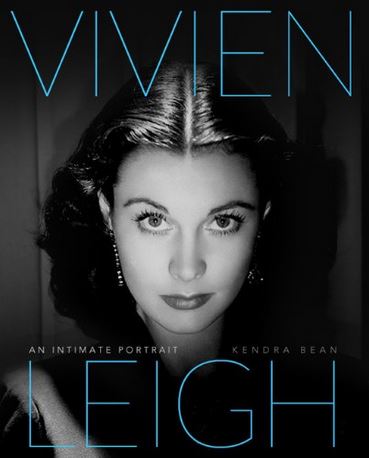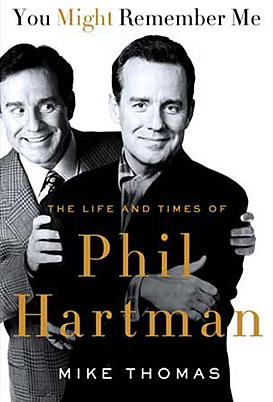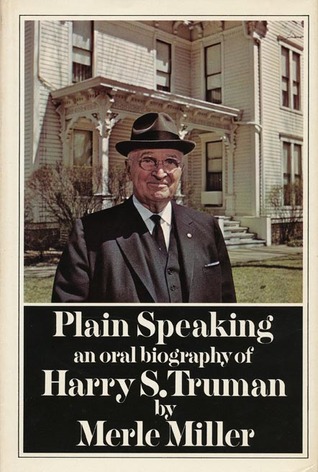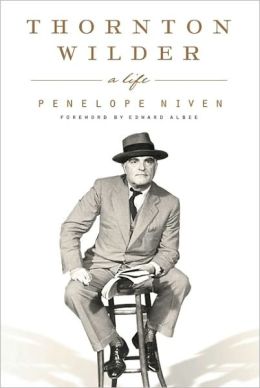Showing posts with label Biography. Show all posts
Showing posts with label Biography. Show all posts
Friday, May 1, 2015
TCR on Television: An Interview with Mike Thomas, author of "You Might Remember Me: The Life and Times of Phil Hartman"
In the recently published You Might Remember Me: The Life and Times of Phil Hartman, journalist Mike Thomas examines the life of a major figure in American comedy. This engrossing read is at once a knowledgeable show biz biography and, considering Hartman's violent death, a sensitively put together true crime story.
Phil Hartman was all over American television in the 1980s and 1990s, most notably as a pivotal cast member on Saturday Night Live from 1986 to 1994. He also appeared on the sitcom News Radio, the children's show Pee Wee's Playhouse, and voiced numerous characters on The Simpsons.
The book's tentatively worded title -- taken from a line spouted by one of Hartman's Simpsons characters, a has-been actor named Troy McClure -- reflects the fact that Hartman, even at the height of his career, was more of a reliably humorous presence than a big name comedy celebrity.
"Even though Phil never became a huge star, he still looms large — as is immediately apparent if you plug his name into Google, Twitter or any number of online portals — in the consciousness of countless fans," Mike Thomas told The Committee Room.
Friday, September 26, 2014
"Vanessa: The Life of Vanessa Redgrave" (Interview with biographer Dan Callahan)
At the opening of his superb new biography Vanessa: The Life of Vanessa Redgrave, author Dan Callahan takes readers back to 1997 when he was a drama student in New York. From a discount-price, obstructed view seat the young Callahan watched the great Vanessa Redgrave as Cleopatra in Shakespeare's Antony and Cleopatra. At the end of the performance, a matinee at the Public Theater, Redgrave solemnly informed the audience that she had just received word of the death of Fred Zinnemann who had directed her Oscar winning performance in Julia two decades earlier. Redgrave praised Zinnemann's Western film classic High Noon, citing it as a brave statement against the obsessive anti-Communism that pervaded American society in the early 1950s. Then, in her soft British accent, Redgrave astonished the audience by launching into a rendition of the theme to High Noon, a twangy ballad ("Do not forsake me, oh my darling!...") originally sung by Tex Ritter.
The crowd drifted out of the theater as Redgrave continued through the verses of the song but Callahan was transfixed. Nearly twenty years later, his fascination with Redgrave has not diminished.
"I just can’t get enough of watching her. I think that there is something very special going on when she acts, and I wanted to celebrate that," Callahan told The Committee Room.
The crowd drifted out of the theater as Redgrave continued through the verses of the song but Callahan was transfixed. Nearly twenty years later, his fascination with Redgrave has not diminished.
"I just can’t get enough of watching her. I think that there is something very special going on when she acts, and I wanted to celebrate that," Callahan told The Committee Room.
Thursday, September 11, 2014
In Honor of the 75th anniversary of 'Gone with the Wind' -- An Interview with Kendra Bean, author of "Vivien Leigh: An Intimate Portrait"
 |
| Vivien Leigh: An Intimate Portrait by Kendra Bean. |
At the center of this immortal film is the performance of Vivien Leigh as the scheming Southern belle Scarlett O'Hara. While it may be possible to imagine another actress as Scarlett, it is difficult to see Gone with the Wind achieving such tremendous success if Leigh had not been cast. Leigh's remarkable ability to convey steely determination underscored with trembling fragility is an essential element. Even in the capable hands of Katharine Hepburn or Bette Davis, both of whom were among the many actresses who wanted to play Scarlett, Selznick's grandiose production may have come down to us as an overblown, dated melodrama.
There have been major biographies of Leigh by Anne Edwards (1977), Alexander Walker (1987), and Hugo Vickers (1989). Bean, a young American film historian based in London, represents a new generation of film scholars. She told TCR that she was drawn to write about Leigh, who died from a badly treated case of tuberculosis at age fifty-three in 1967, "because she’s interesting, often misunderstood, and nothing I’d read about her before seemed to satisfy my curiosity about her life or her work."
Bean is the first major Leigh biographer to have access to the papers of the actor Laurence Olivier, acquired by the British Library in 2000. Leigh and Olivier were married for twenty years before divorcing in 1960.
Tuesday, April 8, 2014
Bestsellers List Revisited -- 1974: Harry S. Truman Resurgent with "Plain Speaking" by Merle Miller
The Committee Room looks back forty years to the spring of 1974 when Plain Speaking: an Oral Biography of Harry S. Truman by Merle Miller topped the New York Times Non-Fiction bestseller list. Miller's book presents Truman as a straight talking, salty-tongued Midwestern sage. This was a fresh take on a former president who up to this time had been generally dismissed by scholars and the public as a hack politician out of his depth as leader of the free world.
The success of Plain Speaking led to a major reevaluation of Truman and his presidency.
Miller's "oral biography," published by the Berkley Publishing Corporation, is based on lengthy taped interviews that Miller conducted with Truman in 1961 and 1962, a dozen years before the book's release. At the time of the interviews, Truman was in his late seventies, living in retirement in his hometown of Independence, Missouri, and mostly ignored by the political establishment. Miller, a jack-of-all-trades Manhattan-based writer whose work included screenplays, television scripts, novels, and journalism, was hired to interview Truman for a proposed series of television programs on the former president and his administration. The proposed series was never made due to a lack of interest from television networks and Miller simply held on to the tapes.
The success of Plain Speaking led to a major reevaluation of Truman and his presidency.
Miller's "oral biography," published by the Berkley Publishing Corporation, is based on lengthy taped interviews that Miller conducted with Truman in 1961 and 1962, a dozen years before the book's release. At the time of the interviews, Truman was in his late seventies, living in retirement in his hometown of Independence, Missouri, and mostly ignored by the political establishment. Miller, a jack-of-all-trades Manhattan-based writer whose work included screenplays, television scripts, novels, and journalism, was hired to interview Truman for a proposed series of television programs on the former president and his administration. The proposed series was never made due to a lack of interest from television networks and Miller simply held on to the tapes.
Tuesday, January 28, 2014
A Recovered American Classic: "The Lost Weekend" by Charles Jackson (An Interview with Charles Jackson Biographer Blake Bailey)
Novels are often overshadowed to the point of near oblivion by successful film versions. Forrest Gump. The Silence of the Lambs. Kramer vs. Kramer. Midnight Cowboy. In the Heat of the Night. True Grit. The Graduate. Would anyone think of this as a list of novels?
Similarly,The Lost Weekend is remembered today, if it is remembered at all, as an Oscar winning 1945 film directed by Billy Wilder and starring Ray Milland as a struggling and not so young anymore writer on a harrowing, five-day drinking binge in Manhattan.
The even harder hitting novel The Lost Weekend by Charles Jackson, upon which the movie is based, was published seventy years ago this month, in January 1944. The Lost Weekend sold a half million copies in its first few years of publication, was translated into several languages, and made its author famous, at least for awhile.
Jackson and his novel have recently emerged from the shadows. Vintage Books has brought out a trade paperback edition ofThe Lost Weekend. Also, a superb biography of Jackson -- Farther and Wilder: The Lost Weekends and Literary Dreams of Charles Jackson -- by Blake Bailey was published by Alfred A. Knopf.
Similarly,The Lost Weekend is remembered today, if it is remembered at all, as an Oscar winning 1945 film directed by Billy Wilder and starring Ray Milland as a struggling and not so young anymore writer on a harrowing, five-day drinking binge in Manhattan.
The even harder hitting novel The Lost Weekend by Charles Jackson, upon which the movie is based, was published seventy years ago this month, in January 1944. The Lost Weekend sold a half million copies in its first few years of publication, was translated into several languages, and made its author famous, at least for awhile.
Jackson and his novel have recently emerged from the shadows. Vintage Books has brought out a trade paperback edition ofThe Lost Weekend. Also, a superb biography of Jackson -- Farther and Wilder: The Lost Weekends and Literary Dreams of Charles Jackson -- by Blake Bailey was published by Alfred A. Knopf.
Thursday, February 21, 2013
TCR Spotlight on Theater: Interview with Penelope Niven, Author of "Thornton Wilder: A Life"
Thornton Wilder: A Life by Penelope Niven is a superb new biography of the American playwright, novelist, and man of letters.
A winner of three Pulitzer Prizes and so far the only writer to earn Pulitzers in both fiction and drama, Thornton Wilder stood at the top of the American literary scene for nearly half a century. He gained prominence with his first novel The Cabala, (1926), about a young American in Rome after World War I, and soon moved into the top echelon of writers with his now classic The Bridge of San Luis Rey (1927), a slim novel that asks profound questions in its examination of the lives of a disparate group of characters killed in a bridge collapse.
Wilder's favorite genre was the theater. He enjoyed critical and commercial success with the plays The Skin of Our Teeth (1942), The Matchmaker (1955) -- which later served as the basis for the musical Hello, Dolly! -- and most famously Our Town (1938). On a nearly bare stage with the proceedings narrated by an avuncular Stage Manager character, Our Town presents the eternal cycle of life and death among ordinary people in an ordinary New England town in the early twentieth century.
A winner of three Pulitzer Prizes and so far the only writer to earn Pulitzers in both fiction and drama, Thornton Wilder stood at the top of the American literary scene for nearly half a century. He gained prominence with his first novel The Cabala, (1926), about a young American in Rome after World War I, and soon moved into the top echelon of writers with his now classic The Bridge of San Luis Rey (1927), a slim novel that asks profound questions in its examination of the lives of a disparate group of characters killed in a bridge collapse.
Wilder's favorite genre was the theater. He enjoyed critical and commercial success with the plays The Skin of Our Teeth (1942), The Matchmaker (1955) -- which later served as the basis for the musical Hello, Dolly! -- and most famously Our Town (1938). On a nearly bare stage with the proceedings narrated by an avuncular Stage Manager character, Our Town presents the eternal cycle of life and death among ordinary people in an ordinary New England town in the early twentieth century.
Subscribe to:
Posts (Atom)






